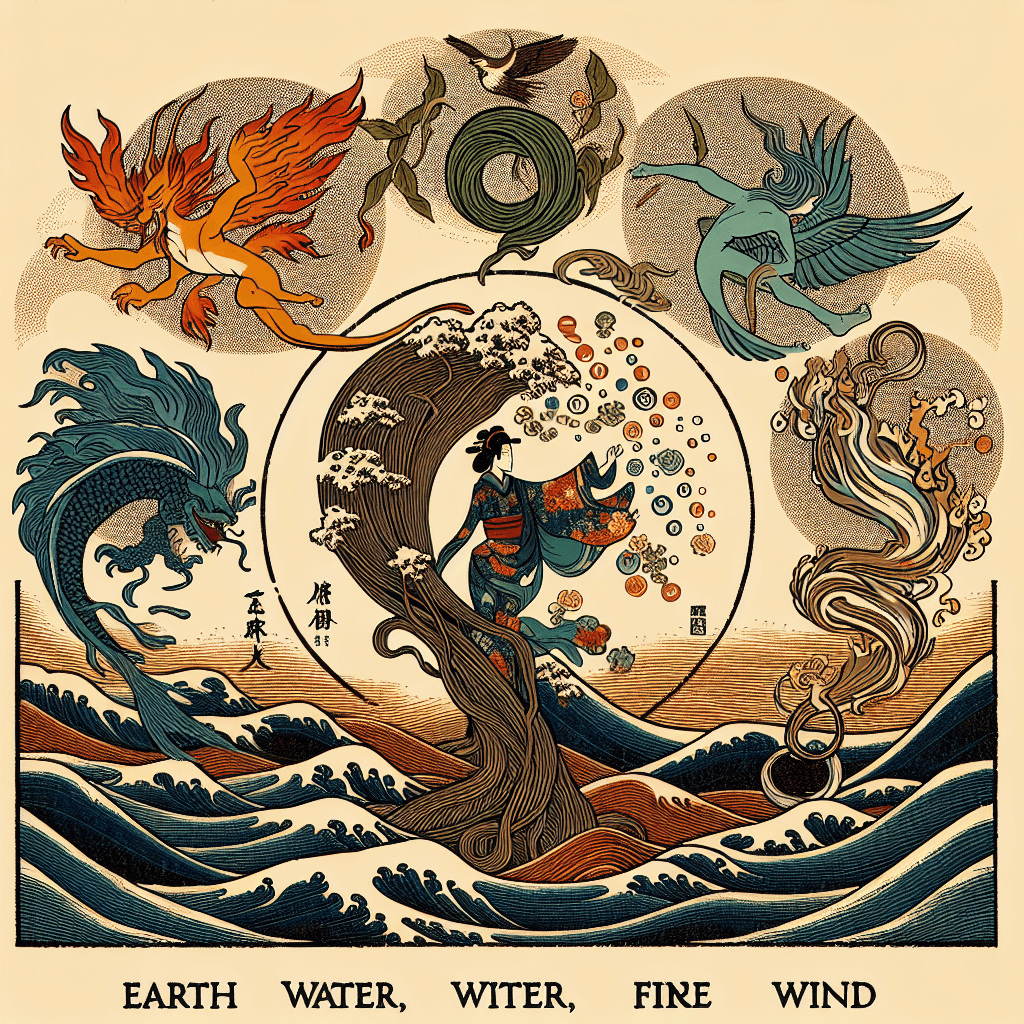

syndu | May 15, 2024, 8:16 p.m.

Japanese literature is a rich tapestry that often intertwines the philosophical concept of Godai, or the "Five Great" elements—Earth (Chi), Water (Mizu), Fire (Hi), Wind (Kaze), and Void (Ku)—into its narrative structure. This blog post explores the presence and use of these elements in both classical and contemporary Japanese literature, revealing the depth and complexity they add to storytelling.
Chi, symbolizing solidity and growth, is a recurring motif in Japanese literature, often used to represent the physical setting or the emotional foundation of characters. In the works of Natsume Sōseki, one of Japan's most famed novelists, the Earth element is frequently employed to depict the stability or instability of the characters' circumstances. Similarly, in classical Haiku poetry, Chi is evoked through imagery of landscapes and nature, grounding the reader in a palpable sense of place.
Mizu, with its connotations of fluidity and adaptability, is central to the narrative flow of Japanese stories. The Tales of Genji, written by Murasaki Shikibu in the 11th century, uses water imagery to convey the changing emotions and fortunes of its characters. Contemporary writers like Haruki Murakami also employ water as a metaphor for the subconscious, with streams of consciousness that reflect the ebb and flow of the characters' inner lives.
Hi, representing transformation and energy, is often a catalyst for character development in Japanese literature. Fire can symbolize passion, destruction, or rebirth, as seen in Yukio Mishima's "The Temple of the Golden Pavilion," where the protagonist's obsession leads to the fiery destruction of a sacred temple. This act of arson becomes a transformative moment, both in the narrative and for the character's psyche.
Kaze, signifying movement and change, is a dynamic element in the plot of many Japanese tales. The wind can be a harbinger of change or a force that drives the story forward. In the epic "The Tale of the Heike," the wind is a constant presence, reflecting the tumultuous era and the shifting fortunes of the samurai clans.
Ku, the element of potential and enlightenment, is often explored in Japanese literature through themes of existentialism and the search for meaning. The works of existentialist writer Kōbō Abe, for example, delve into the void of human existence, questioning identity and reality. His novel "The Woman in the Dunes," for example, uses the imagery of sand and emptiness to explore the protagonist's psychological state.
The Godai elements are not just philosophical concepts but are deeply embedded in the narrative structure of Japanese literature. They provide a framework for exploring complex themes, character development, and the very essence of storytelling. As we delve into the literary world of Japan, we find that the Godai elements are as much a part of the narrative as the characters and plot themselves, shaping the stories that have captivated readers for centuries.
This post is part of the "Exploring Godai: The Five Elements of Japanese Philosophy" series, offering insights into the elemental forces that shape Japanese traditions and the philosophical insights they offer.